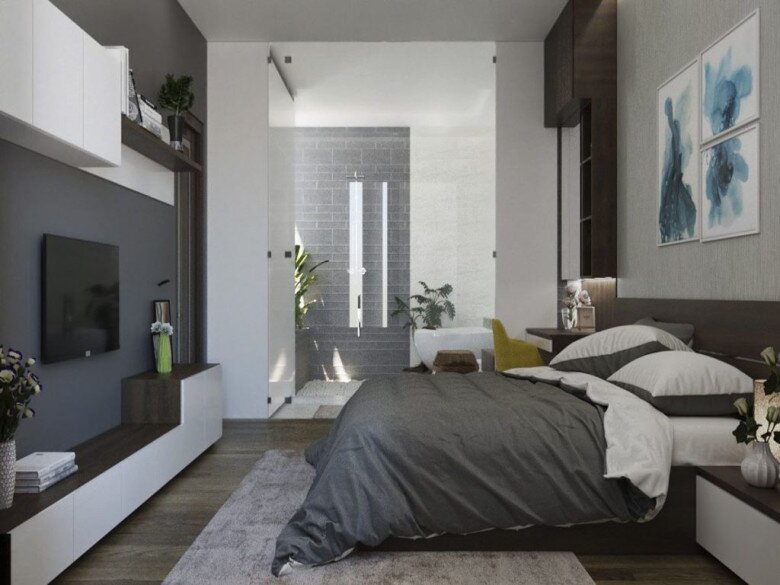The placement of your bed can greatly impact your well-being. It is important to be mindful of certain arrangements to ensure a healthy and restful sleep. Specifically, there are two walls that you should avoid placing your bed against.
1. Avoid positioning the head of your bed against a bathroom wall:

Modern homes often feature en-suite bathrooms, which include both a shower and toilet. While this design is convenient, it is important to avoid placing your bed against the bathroom wall.
Bathrooms are typically associated with unpleasant odors and dampness. By positioning your bed against this wall, these odors can directly affect your breathing and disrupt your sleep. Additionally, the damp environment fosters the growth of bacteria and mold, which can spread to your bed and cause health issues such as joint pain, headaches, memory loss, and nerve disorders.
The noise from plumbing and flushing can also disturb your sleep, especially at night. Therefore, it is best to avoid placing your bed against the bathroom wall.
2. Avoid placing your bed against a window:

While it may be tempting to place your bed by the window to enjoy the view, experts advise against it. Inefficient window sealing can lead to air leaks and drafts, which can cause health issues like headaches and colds over time.
Additionally, morning sunlight and community lighting at night can disrupt your sleep, especially if your curtains have low light-blocking capabilities. Windows also tend to attract dust and bacteria, which can fall onto your bed and cause skin irritation and acne.
In humid or rainy weather, placing your bed against the window can increase moisture in the room, leading to respiratory issues like allergic rhinitis. Furthermore, forgetting to close the window or heavy rain can result in water splashing onto your bed.

If space constraints limit your options, there are measures you can take to mitigate the issues. For instance, if your bed is against a window, invest in soundproof, airtight, and heat-insulating windows. Choose curtains with high light-blocking properties to minimize light disruption. Remember to keep windows closed when you’re out or during rainy weather to prevent dust and water from entering the room.
If your bed is against a bathroom wall, soundproof the plumbing by wrapping pipes with acoustic insulation and consider building an acoustic wall. Maintain good hygiene by regularly cleaning your bedroom and bathroom to prevent the growth of bacteria and mold.
In addition to these two no-go zones, it is also advisable to avoid placing your bed under a crossbeam, directly below an air conditioner, or facing a mirror or entrance for privacy and health reasons.





































